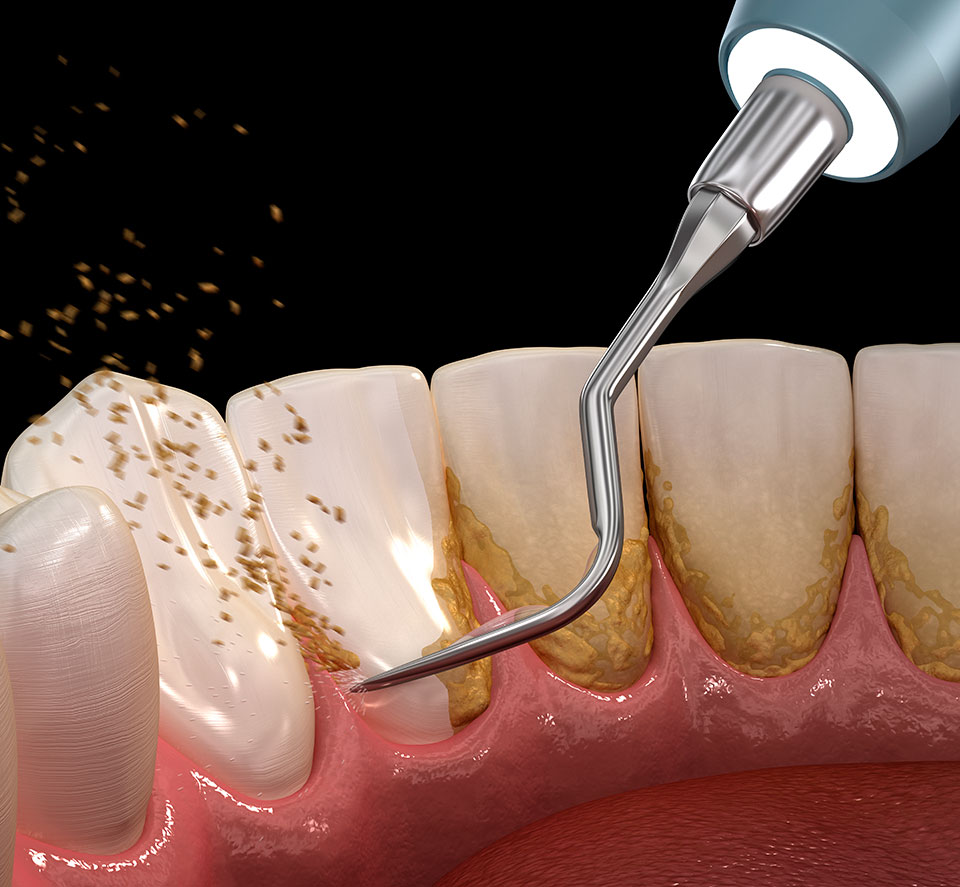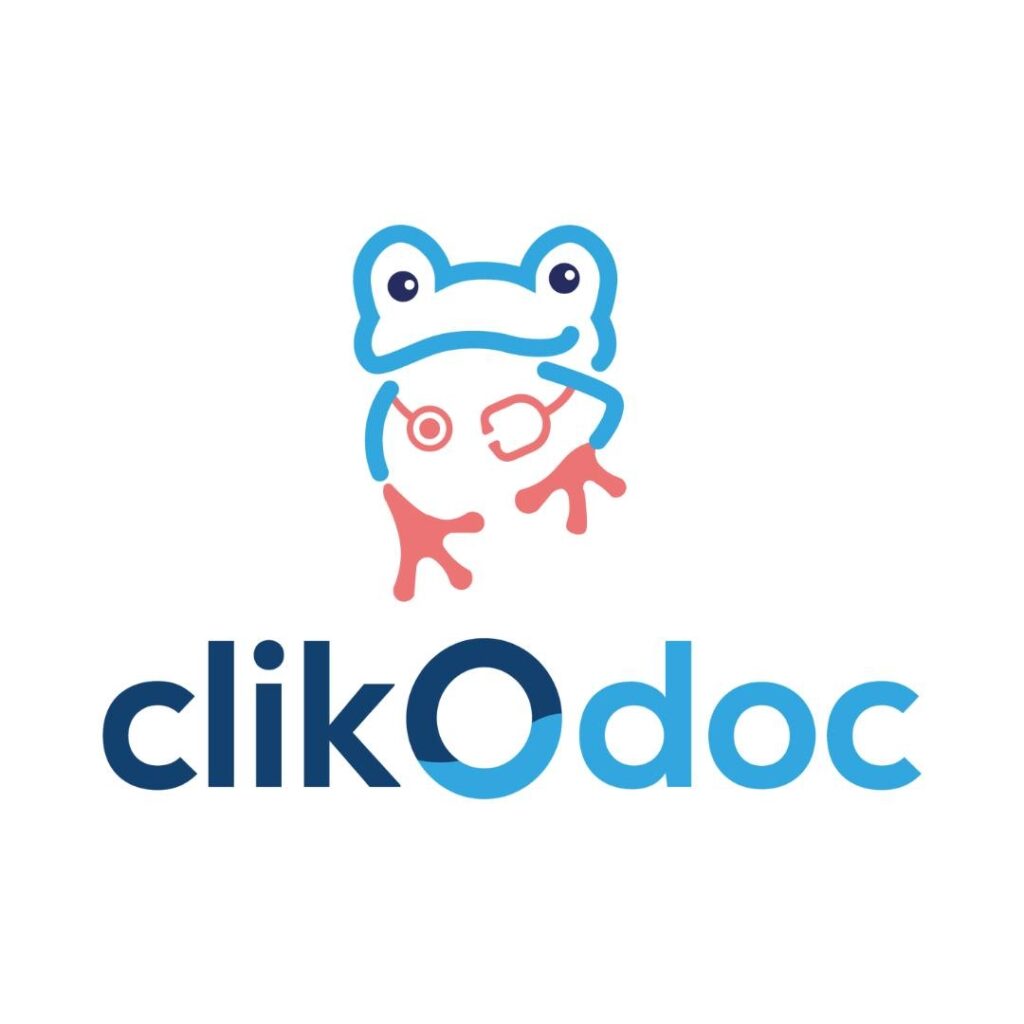
Gingivitis and scaling
The dentist’s role is to protect the teeth as well as their supporting tissues, namely the bone, gums, and ligaments that surround them.
Gingivitis is the mildest form of periodontal disease. It is very common. It results from incomplete oral hygiene. It occurs following the attachment of bacteria that accumulate around the teeth, forming dental plaque.
If plaque is not properly removed, it accumulates and calcifies. This is called tartar, leading to inflammation of the gums. Gingivitis is usually painless, so look for other symptoms such as bleeding gums, a red and swollen appearance, sensitivity, and persistent bad breath.
At this stage, scaling to remove any plaque present and a strict hygiene protocol supervised by your dentist will help treat gingivitis.
Periodontitis and root planing
Periodontal disease results from long-term gingivitis, causing irreversible consequences for the tooth’s supporting tissues.
The accumulation of plaque extends deeper into the gum, creating a separation between the gum and the tooth. This separation will cause “pockets” that will lead to bone destruction of the tooth’s supporting tissue.
The tooth will then lose the surrounding bone and gradually become mobile. This mobility can be more or less significant depending on the severity of the periodontitis. It will be responsible for the phenomenon of tooth loosening, or even tooth loss.
When periodontitis is diagnosed, the goal of treatment is to halt its progression with a treatment called “root planing.”
This treatment aims to disinfect the root surface, thus allowing partial reattachment of the gum to the tooth, reducing these pockets, and reducing tooth mobility.

Gingival grafting
Gum grafts are designed to strengthen and cover loosening teeth, as well as to thicken the gum tissue around a dental implant.
A loss of supporting tissue will facilitate the accumulation of plaque, leading to increased tooth sensitivity and tooth mobility.
A preliminary diagnosis will help determine the cause of the recession, such as aggressive brushing or tooth malposition, in order to establish a treatment plan that will allow the selection of the technique (submerged connective tissue graft, epithelioconnective tissue graft) best suited to each case.
Daily routine
How to make an appointment?
To book an appointment at the MadininaSmile Dental Center for conservative care, we invite you to use our online Clikodoc system below.
This way, you can view and book the earliest available appointments that best suit you.
If you’re not comfortable booking an appointment online, you can always contact our team via our dedicated page to schedule an appointment.
Daily routine

To better support you, our dentists work as a team within our clinic.
Listening to our patients is at the heart of our work.